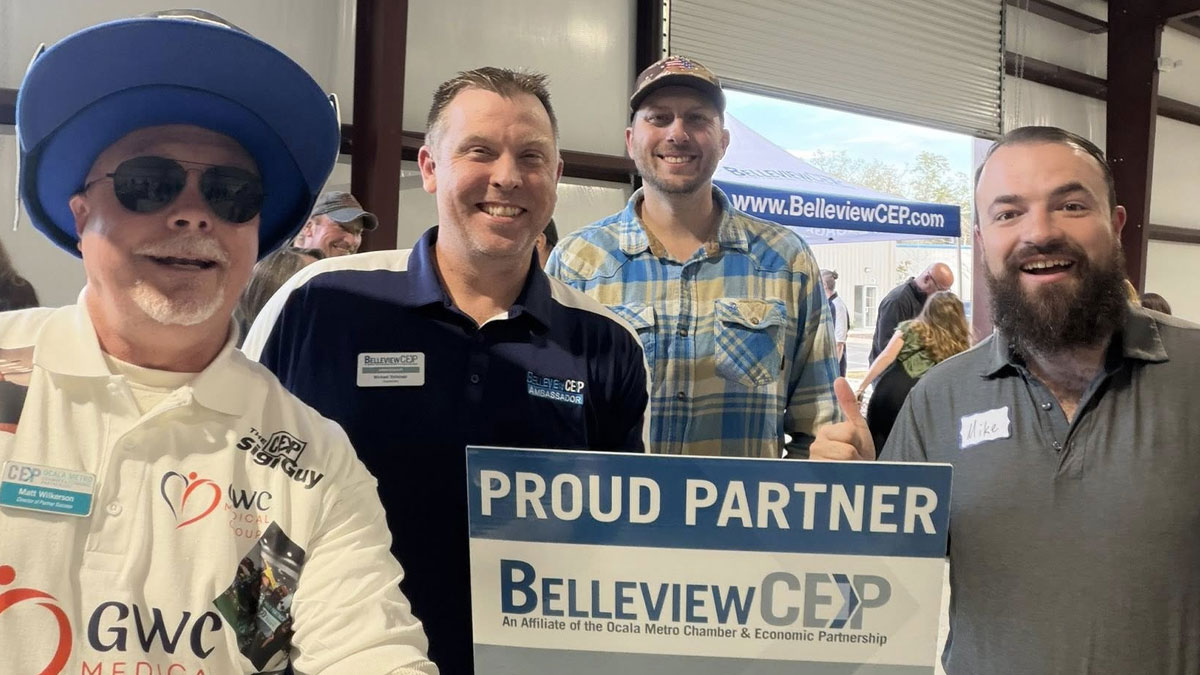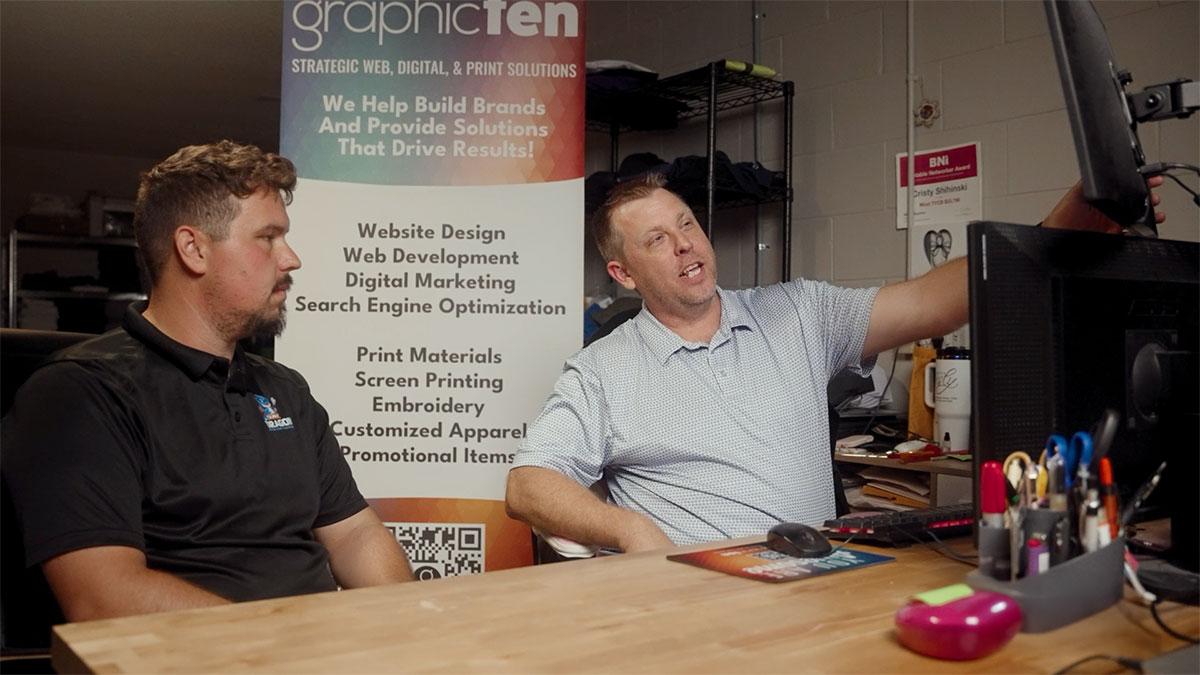10 Questions to Ask Your Ocala SEO Agency
Search engine visibility is a core part of how customers find and engage with businesses online. Whether you’re a local shop looking to reach nearby customers or a growing brand with national reach, SEO can help you attract the right audience and generate results that matter. But finding the right SEO partner isn’t always straightforward.

Not all SEO providers are created equal. Some overpromise and underdeliver. Others push cookie-cutter strategies that miss your unique goals. The key is asking the right questions to uncover whether an agency has the experience, approach, and communication style that fits your business goals.
Here are 10 essential questions to guide your conversation with any potential SEO partner.
1. Can You Share Case Studies or Examples of Past Successes, Particularly in Our Industry?
Real examples backed by clear results can offer insight into an agency’s capabilities. Ask to see case studies or reports that show how they helped businesses improve their rankings, increase traffic, or boost conversions.
Look for specifics:
What was the client’s challenge?
What strategy did the agency use?
What were the results?
While experience in your specific industry can be valuable, it’s not essential. Many SEO principles are transferable across verticals. A strong agency will be skilled in researching new industries, identifying audience intent, and developing a custom plan even if they haven’t worked in your niche before.
Don’t just look at outcome metrics, look at the timeline, process, and how they measure success. And if they’re newer or don’t have extensive case studies yet, ask how they approach performance tracking and client transparency. Ambition and a data-driven mindset can still make for a solid partnership.
2. Do You Stay Updated With the Latest SEO Trends and Algorithm Changes?
Search engines regularly update their algorithms, and what worked last year or even last month might not work today.
Ask how the agency stays on top of these changes.
Do they follow respected industry blogs, attend conferences, participate in training, or test strategies themselves?
It’s important that they can not only describe how they stay current but also give examples of recent changes they’ve adapted to. Their answer should show a commitment to ongoing learning and an ability to translate trends into practical strategies for clients.
Even newer agencies can be ahead of the curve if they invest time in research, community engagement, and experimentation. Curiosity and critical thinking often matter more than years of experience when it comes to staying relevant in SEO.
3. What Is Your Approach to SEO, and How Do You Tailor Strategies to Individual Businesses?
A well-rounded SEO strategy should never be pulled from a template. Every business has different goals, audiences, competition, and technical limitations.
When evaluating an agency, ask how they go about building your strategy from the ground up.
They should start with discovery: learning about your business model, understanding your buyer journey, and analyzing your current performance. From there, a thoughtful strategy might include on-page optimization, technical audits, content planning, and link building but only where it makes sense.
Listen for signs that the agency invests time upfront to define what success looks like for you. They should talk about aligning SEO with your specific objectives, whether that means driving local foot traffic, increasing online sales, or boosting qualified leads. Flexibility and strategic thinking are more important than a rigid set of services.
4. How Do You Conduct Keyword Research and Integrate It Into Your Strategy?
Keyword research is the foundation of effective SEO. It helps connect your content with the questions, needs, and problems your potential customers are actively searching for.
Ask how the agency approaches this process:
What tools do they use?
How do they evaluate keyword intent, volume, and competitiveness?
A thorough agency should identify keywords that align not only with your services but also with different stages of the buyer journey. They should then map those keywords to key pages on your site and use them to shape content, meta tags, and internal linking structures.
Also consider how they adapt keyword strategies over time. Search behavior evolves, and your SEO should too. Whether you’re targeting local, long-tail, or high-volume competitive terms, the ability to pivot is just as important as the initial research.
5. What Is Your Process for Building High-Quality Backlinks?
Backlinks remain one of the most important ranking factors for search engines. They signal credibility, authority, and relevance when they come from trustworthy websites. But not all backlinks are created equal. The focus should be on earning links from relevant and reputable sources, not just amassing as many as possible.
Ask the agency how they go about identifying link opportunities.
Are they using content marketing, digital PR, outreach to industry blogs, or collaborations with thought leaders?
A sound strategy should be rooted in quality, with an understanding of what types of links will benefit your business long-term.
Be cautious of any agency that talks about buying links or using private blog networks (PBNs). These tactics can lead to penalties from search engines. Newer agencies that focus on relationship-building, high-quality content, and ethical outreach can still be highly effective in earning valuable backlinks.
6. What Metrics Do You Track, and How Will You Report Progress to Us?
Transparency is one of the cornerstones of a successful SEO relationship.
Ask the agency which performance indicators they track and how they communicate results.
At a minimum, they should be monitoring organic traffic, keyword rankings, conversions, bounce rates, and technical site health.
Just as important as the data is how it’s presented. Reporting should be clear and tailored to your business goals not just a flood of numbers. Ask how often they provide reports, whether they include analysis or insights, and how they use those findings to refine your strategy.
Even agencies new to the field can stand out by showing a structured approach to measurement. A willingness to explain what’s working, what’s not, and what they plan to test next is a good indicator of a collaborative, results-oriented mindset.
7. Who Will Be Our Point of Contact, and How Frequently Will We Communicate?
Clear communication is essential to building trust and ensuring your SEO strategy stays aligned with your business needs.
Ask who your main point of contact will be and what their role is within the agency.
Will you be speaking directly with a strategist, account manager, or someone else?
You should also clarify how often you’ll receive updates or have check-ins. Some businesses prefer monthly strategy calls, while others want more frequent touchpoints. Understanding the cadence and expectations upfront helps avoid miscommunication down the line.
A newer agency can still provide excellent communication if they’re proactive, organized, and committed to collaboration. Look for responsiveness, transparency, and a willingness to adjust their communication style to fit your preferences.
8. How Do You Handle Technical SEO Issues, Such as Site Speed and Mobile Optimization?
Technical SEO is the foundation that supports all other SEO efforts. Even with great content, your website may struggle to rank if it has slow loading times, poor mobile usability, or issues with indexing and crawlability.
Ask the agency how they identify technical issues.
Do they perform detailed audits?
Do they use tools like Google Search Console, Lighthouse, or third-party crawlers to find problems?
It’s also helpful to know whether they have experience resolving these issues themselves or if they collaborate with your development team.
Look for a process that not only flags problems but prioritizes fixes based on impact. Some technical improvements like compressing images or improving mobile layout can lead to noticeable gains in performance and user experience.
Even smaller or newer agencies can excel here if they have a solid framework for technical analysis and communicate clearly about what actions are needed.
9. Do You Have Experience With Our Website Platform/CMS?
Understanding your website’s platform can make SEO implementation more efficient, but it’s not the only factor to consider.
Ask the agency what platforms they’ve worked with and how they adapt to new ones.
Whether it’s WordPress, Shopify, Webflow, or a custom CMS, many core SEO tasks can be translated with the right technical understanding.
More important than deep platform experience is a problem-solving mindset. A good agency should be able to navigate unfamiliar systems, coordinate with your developers when needed, and apply SEO best practices across a range of platforms.
Don’t dismiss an agency just because they haven’t used your specific CMS, ask how they handle onboarding and learning curves in new environments.
10. Do You Adhere to Search Engine Guidelines to Avoid Penalties?
Following search engine guidelines is critical for long-term SEO success. Tactics that try to manipulate rankings like keyword stuffing, cloaking, or link schemes can result in penalties or even removal from search results.
Ask how the agency ensures its strategies are aligned with Google’s Webmaster Guidelines and other search engine best practices.
Are they transparent about their methods?
Can they explain their approach to earning links, optimizing content, and improving visibility without cutting corners?
Even if an agency is new, a commitment to ethical practices and staying within search engine rules is non-negotiable. Sustainable SEO is about building credibility over time, not chasing shortcuts that can harm your site in the long run.
Red Flags to Watch Out For
Choosing an SEO partner is as much about knowing what to avoid as it is about finding the right fit. Here are some common red flags that should prompt a closer look:
- Guaranteed #1 Rankings: No agency can guarantee top rankings, especially not for competitive keywords. Promises like these are often a sign of unrealistic tactics or a lack of transparency about what SEO can truly achieve.
- Vague or Missing Reports: If an agency doesn’t clearly explain what work they’ve done, what results they’re seeing, or how they measure success, that’s a problem. You deserve clarity and accountability, not guesswork.
- Generic Packages for Every Client: Your business is unique. If the agency pushes the same strategy or service tiers without first learning about your goals, it may be more interested in volume than results.
- Black-Hat SEO Tactics: Be cautious of anyone suggesting quick wins through link farms, keyword stuffing, or other manipulative techniques. These might work briefly, but often result in long-term penalties or damage.
- Lack of Communication: Infrequent updates or inconsistent contact can derail progress. Your SEO partner should feel like part of your extended team not a black box you hear from once a quarter.
Staying alert to these warning signs can help you avoid costly mistakes and find a partner truly invested in your growth.
Conclusion
Finding the right Ocala SEO agency isn’t just about credentials or price, it’s about alignment. If your business is based in Ocala or you’re exploring SEO support from local experts, the right partner should understand your market, communicate clearly, and build strategies around your goals.
The questions in this guide help you dig deeper than surface-level sales pitches. Whether you’re aiming to boost visibility in the Ocala area, improve local search performance, or grow your online reach more broadly, a thoughtful hiring process makes all the difference.
Even if an agency is new or doesn’t have direct experience in your industry, what really matters is their mindset:
Are they curious, adaptable, and driven by results? If so, they may be exactly the partner you need.
Ready to grow something awesome with SEO? Contact us today for a free consultation.


